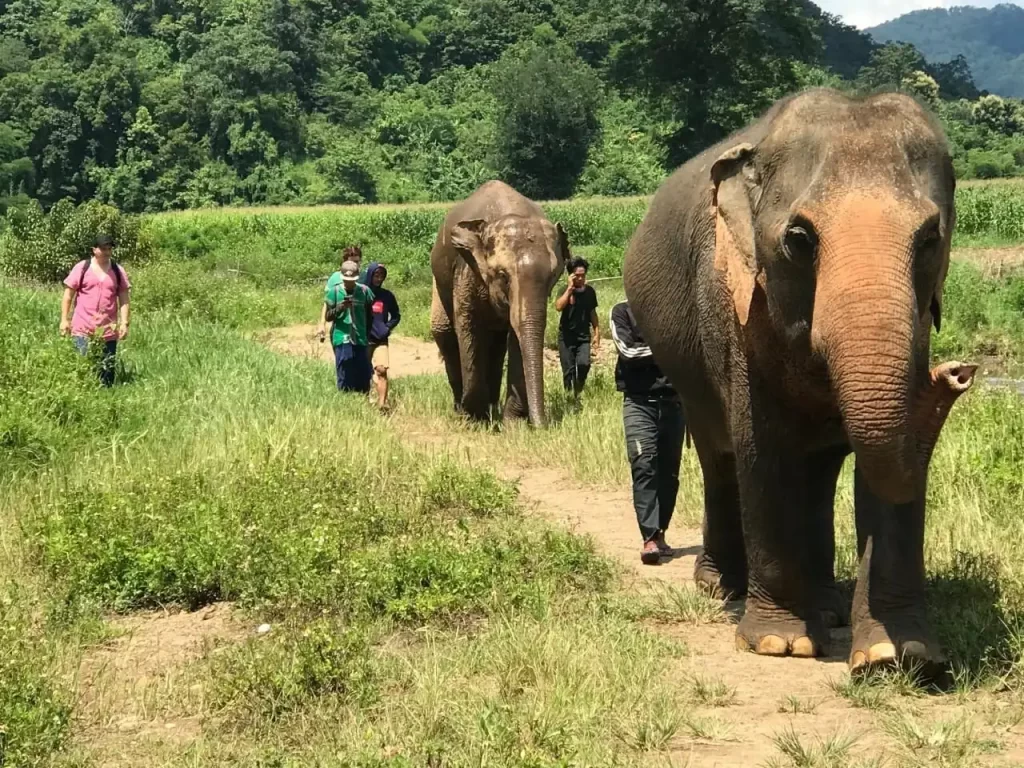How to Choose an Ethical Elephant Tour in Thailand
Thailand is famous for its elephant tours, where visitors can encounter these majestic creatures closely. However, there has been growing concern about the treatment of elephants in the tourism industry. Many elephants suffer from mistreatment, captivity, and overworked conditions. As a responsible traveler, it is essential to choose an ethical elephant tour that prioritizes the well-being and conservation of these animals. This article will guide you in choosing an ethical elephant tour in Thailand, ensuring a responsible and enjoyable travel experience.
Is the Tour Operator Operating an Ethical Elephant Tour?
Before booking an elephant tour, conducting thorough research on the tour operators is crucial. Look for tour companies that strongly focus on elephant welfare and conservation. Check if the tour operators are members of reputable organizations such as the Asian Elephant Specialist Group or the World Animal Protection. These memberships indicate that the tour operators adhere to strict ethical standards for elephant tours.
Additionally, it is essential to assess the conditions in which the elephants are kept. Look for operators that prioritize the well-being of the elephants, ensuring they have access to proper food, water, and shelter. Avoid tours involving activities such as riding or performances, as these can harm the elephants’ physical and mental health.
Another aspect to consider is the size of the tour groups. Opt for smaller groups, as they tend to have a less intrusive impact on the elephants and provide a more intimate experience for visitors. Large groups can cause stress and discomfort for the elephants, leading to negative consequences for their welfare.

Additionally, I read reviews and testimonials from previous visitors to understand their experiences with the tour operators. Look for feedback related explicitly to elephant welfare and the overall ethical practices of the company. These reviews from former gusts will give you great insight into whether the operator is truly operating an ethical elephant tour.
You can contribute to responsible tourism and support organizations actively working towards elephants’ conservation and well-being by doing thorough research and choosing a tour operator that prioritizes elephant welfare.
Visit Ethical Elephant Sanctuaries
Ethical elephant sanctuaries provide elephants with a safe and natural environment, allowing them to roam freely and socialize with other elephants. These sanctuaries focus on rehabilitating and conservating elephants and aim to educate visitors on responsible elephant tourism.
They prioritize the physical and mental well-being of the elephants, ensuring they are not subjected to harmful practices such as riding, performing tricks, or being kept in chains. Instead, visitors can observe and interact with elephants in their natural habitat, learning about their behavior, conservation efforts, and the importance of preserving their natural ecosystems.
Ethical elephant sanctuaries also work closely with local communities, providing employment opportunities and promoting sustainable tourism practices. By supporting these sanctuaries, visitors contribute to the protection of elephants and the preservation of their natural habitats.
Furthermore, ethical elephant sanctuaries actively discourage the exploitation of elephants for entertainment purposes, such as circuses or festivals. They raise awareness about the cruel treatment and illegal trade that elephants often face, aiming to change public perception and promote ethical alternatives.
In summary, ethical elephant sanctuaries serve as havens for these majestic creatures, allowing them to live a life free from exploitation. They provide a safe and natural environment for elephants and play a vital role in educating visitors, promoting responsible elephant tourism, and contributing to the conservation efforts of these incredible animals.
Observe the Behavior of the Elephants
When visiting an elephant tour or sanctuary, observe the behavior of the elephants closely. Ethical elephants should display natural behaviors such as socializing, foraging, and bathing. They should not show signs of distress, such as swaying, pacing, or being chained up.
It is essential to carefully observe the behavior of elephants when visiting an elephant tour or sanctuary. To ensure that the treatment of elephants is ethical, it is crucial to look for signs of natural behavior. Ethical elephants should engage in socializing, foraging, and bathing.
When elephants socialize, they can bond with other elephants, which is a natural behavior. This includes activities such as trunk touching, gentle playing, and vocalizations. In addition, elephants should be seen foraging for food, as this is a vital part of their natural diet. They should be allowed to browse and graze on a variety of vegetation.
Bathing is another vital behavior to observe. Elephants often enjoy bathing in water bodies like rivers or mud holes. This behavior helps them keep calm and acts as a natural hygiene form. Therefore, if elephants engage in such activities, it indicates ethical treatment.
On the other hand, signs of distress should be noted as red flags. Elephants that are constantly swaying or pacing are likely experiencing stress. These repetitive behaviors can be an indication of captivity-induced psychological distress. Additionally, if elephants are chained up or confined in small spaces, it shows unethical treatment.
By closely observing the behavior of elephants, we can ensure that their welfare is being prioritized. Ethical elephant experiences should mimic their natural behaviors, allowing them to socialize, forage, and bathe freely while avoiding signs of distress such as swaying, pacing, or being chained up.


Interact Responsibly with the Elephants
When interacting with elephants, doing so responsibly and respectfully is essential. Follow the rules and regulations set by the tour operator or sanctuary. Avoid touching elephants in sensitive areas, such as their heads or trunks, as this can cause discomfort or stress. Instead, observe the elephants safely and allow them to approach you if they feel comfortable.
Support Conservation Efforts
Choose elephant tours or sanctuaries that actively contribute to conservation efforts. These may include initiatives such as reforestation, research, or community-based projects. By supporting these tours, you contribute to protecting and preserving elephants and their natural habitats.
Conclusion
An ethical elephant tour in Thailand is essential for a responsible travel experience. By doing thorough research, visiting ethical sanctuaries, observing the behavior of the elephants, interacting responsibly, and supporting conservation efforts, you can ensure that your elephant tour aligns with ethical standards and promotes the well-being and conservation of these magnificent animals. Remember, responsible tourism is about enjoying the experience and positively impacting the destinations we visit.


